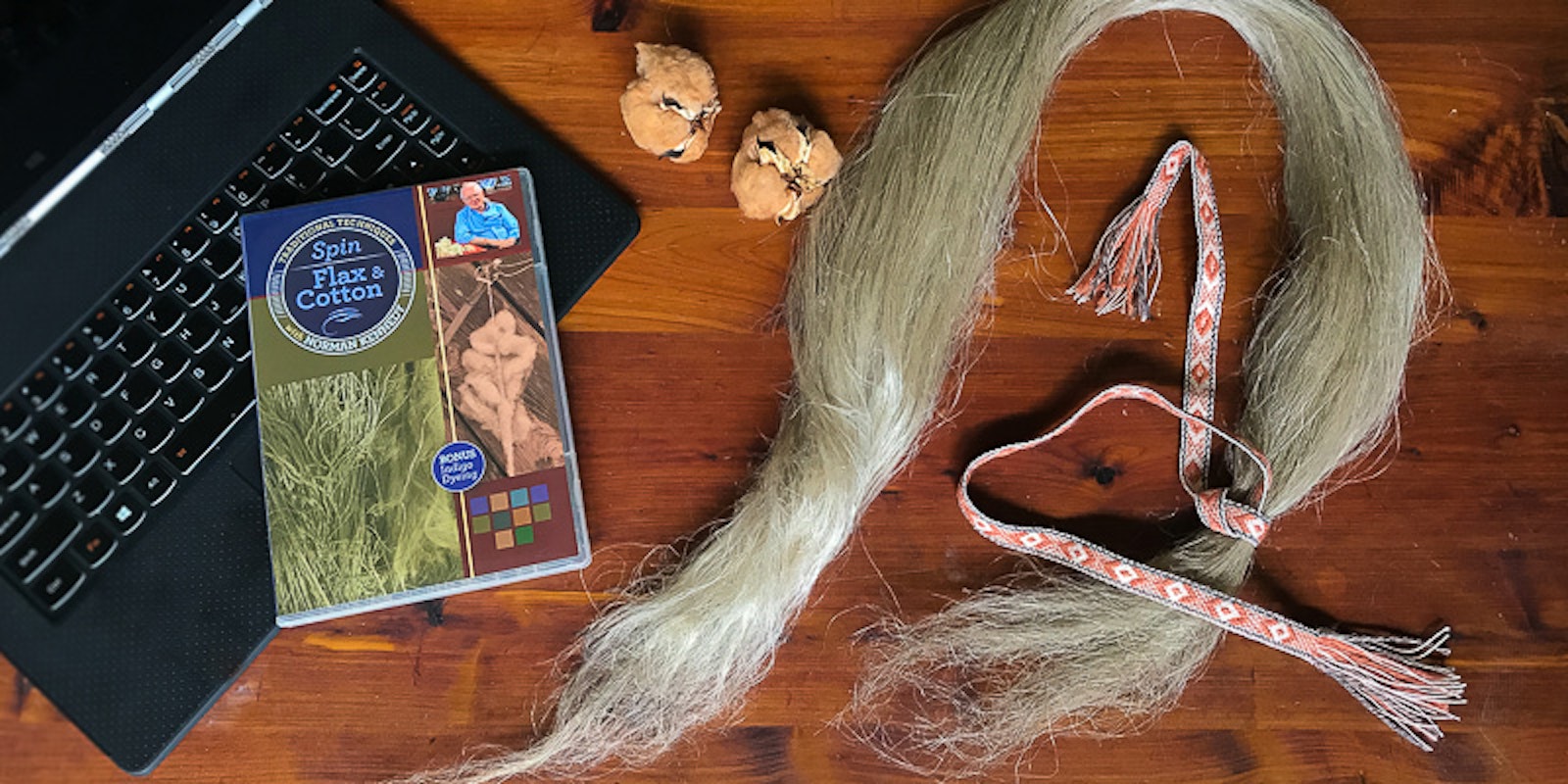This summer, I’ve spent more time working with and reading about cotton and flax than I typically do in my spinning life. Over the weekend, as I finished hackling a new strick of flax and started processing a lovely bag of ginned green cotton, I decided to see what Norman Kennedy had to say about such things.
I love many handspinning and textile videos, and Norman Kennedy’s Spin Flax and Cotton and From Wool to Waulking are two that I return to again and again. Norman still does some teaching at the Marshfield School of Weaving, which he founded in the early 1970s. His techniques, knowledge, and songs are steeped in a deep history of textile makers in both Britain and America. There’s nothing quite like spending time with Norman—check out this preview.
https://www.youtube.com/watch?v=FOk8vLgxfgE
No matter how many times I watch this video, I always learn something new. Sometimes it’s a passing comment that I didn’t catch before, but at other times, I see something in the way he is handling a spindle, carding cotton or wool, or preparing a distaff for spinning flax.
So, here are a few of my favorite, “Norman says…” tidbits from Spin Flax and Cotton:
Flax vs. Linen
Flax is grown, processed, spun and woven—when does it become linen? Norman says, “In the old days, ‘linen’ was when it was actually woven into cloth. Before that it’s flax thread, flax yarn, flax fiber.”
The Well Tied Skein
Especially when making skeins of handspun flax and cotton that will be scoured or dyed, ties are intended to keep the skein tidy but can wander around. These ties need to be loose so that they don’t inhibit dye penetration. Even a figure-eight tie will rotate around the skein, so Norman says to divide the skein into three sections to prevent the tie from moving.
Tie the scrap yarn around three sections of the skein. This way, it can be loosely tied but will not slide around the skein.
Preparation Is Paramount
Norman says that if your cotton “is carded well, it’s already half spun.” Putting time and work into careful preparation can often make spinning easier and cloth more consistent. While I know this and regularly experience it, I still think I need to put this on a post-it note in my studio. Maybe an embroidered cushion?
Kate Larson
Featured Image: A good day’s work. Photo by Kate Larson
Find tips for spinning flax and cotton!


